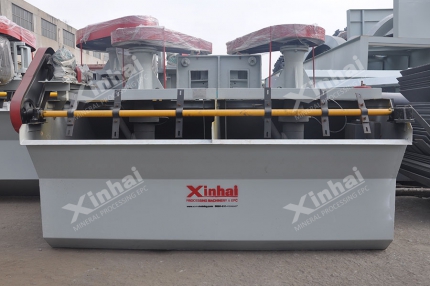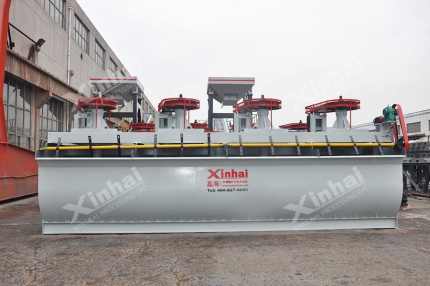As an important raw material for the manufacture of new energy batteries, lithium ore is widely used in various industrial fields. Spodumene, lepidolite, ferrolithium mica and petalite are commonly used lithium raw materials in industry. These lithium minerals are distributed in different types of deposits, and their beneficiation methods are different, depending on the distribution of minerals and the complexity of associated minerals. This article will introduce in detail the common ore dressing technology and applications of spodumene and lepidolite.
Use the table of contents below to navigate through the guide:
01Spodumene dressing technology
Spodumene is one of the most commonly used lithium minerals, and its beneficiation methods are diverse, mainly including hand selection, flotation and other auxiliary methods such as thermal cracking, heavy medium and magnetic separation.
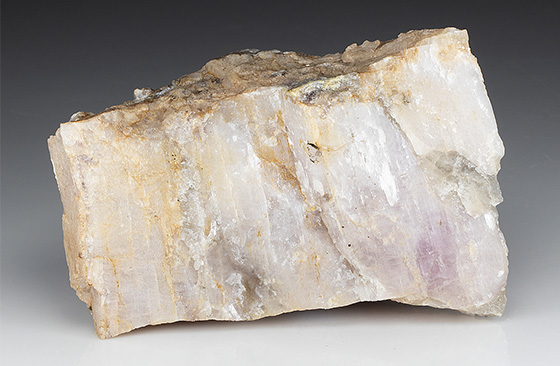
1. Hand selection method
Hand selection is the earliest process used for spodumene beneficiation in history. It is based on the difference in color and appearance between lithium minerals and gangue minerals. The particle size range of hand selection is generally 10 to 25 mm, but due to high labor intensity, low productivity, poor beneficiation indicators, and large waste of resources, hand selection has gradually been replaced by flotation and other methods in modern industry. However, in areas where labor is relatively cheap, hand selection is still used to produce lithium concentrates such as lepidolite and petalite.
2. Flotation method
Flotation is currently the most commonly used method for spodumene separation, which is divided into two processes: positive flotation and reverse flotation:
- Positive flotation process: In an alkaline medium, sodium hydroxide or sodium carbonate is used as a regulator, and fatty acids or their soaps are used as collectors to float the ground ore. This method directly floats spodumene, and the flotation concentrate recovery rate is high.
- Reverse flotation process: Using an alkaline medium adjusted by lime, spodumene is inhibited by adding starch inhibitors, and then a cationic collector is used to float gangue minerals. The remaining product in the tank is spodumene concentrate.
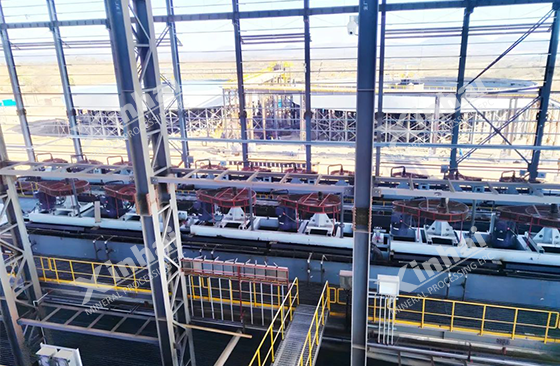
Flotation technology is also used to separate spodumene from other minerals, such as the separation of spodumene and beryl, which is particularly important in the beneficiation of lithium beryllium ore. There are three common separation methods:
① Prioritize the flotation of spodumene and then mix beryl.
② Prioritize the flotation of beryl and then flotate spodumene.
③Float spodumene first, then beryl.
Each process is optimized based on the flotation characteristics of the mineral, combined with experiments and practice, to maximize the recovery rate.
3. Other spodumene beneficiation methods
In addition to hand selection and flotation, spodumene beneficiation also involves some auxiliary methods:
- Thermal cracking beneficiation method: spodumene is roasted at high temperature (about 1100℃), and its crystals change from α type to β type, with volume expansion and brittleness. Mineral separation can be achieved through selective grinding and screening. This method has a certain application in spodumene selection, but it has high requirements for temperature control, and the ore must not contain fusible minerals.

- Heavy medium beneficiation method: Due to the small difference in density between spodumene and associated minerals, the usual jigging, spiral and shaking table gravity separation methods are not effective, while heavy medium beneficiation or heavy liquid beneficiation is more effective in spodumene selection.
- Magnetic separation method: Magnetic separation is often used as an auxiliary method to improve the quality of spodumene concentrate, especially for the selection of ferrolithium mica. Ferrolithium mica has weak magnetism, and magnetic separation is the main means of producing ferrolithium mica concentrate.
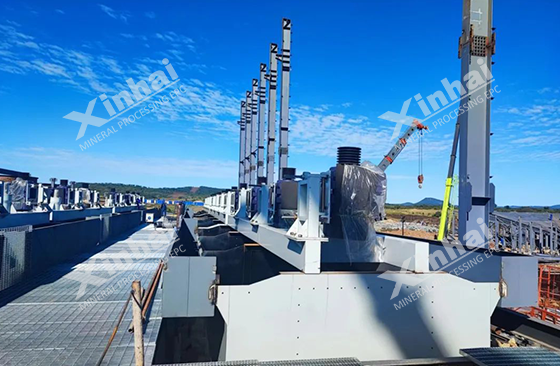
02Lepidolite ore dressing technology
Similar to the ore dressing technology of spodumene, the beneficiation process of lepidolite is also mainly hand-selection and flotation. However, the hand-selection method is only applicable to those lepidolite ores with larger crystal particles. Such ores have obvious differences in color, shape, and appearance of minerals and gangue, so manual sorting is relatively simple and direct. For those lepidolite ores with finer embedded particles, the hand-selection method obviously cannot achieve the ideal beneficiation effect. At this time, the more effective method is flotation.
Lepidolite usually presents a scale-like or leaf-like aggregate, and its surface has good floatation, which can be more easily combined with the collector during the flotation process. In industry, the flotation of lepidolite usually adopts a cationic collector for positive flotation process, that is, by adding a cationic collector, the lepidolite is separated from the associated minerals to achieve the purpose of beneficiation. This flotation method can not only efficiently recover the lepidolite concentrate, but also ensure the purity and quality of the concentrate, meeting the requirements of lepidolite as an industrial raw material.
In addition, the flotation process of lithium mica has strong adjustment flexibility. The type and dosage of flotation reagents can be adjusted according to the different associated minerals in the ore, thereby further improving the recovery rate and quality of the concentrate. The wide application of this process also fully proves its importance in the development of lithium resources.
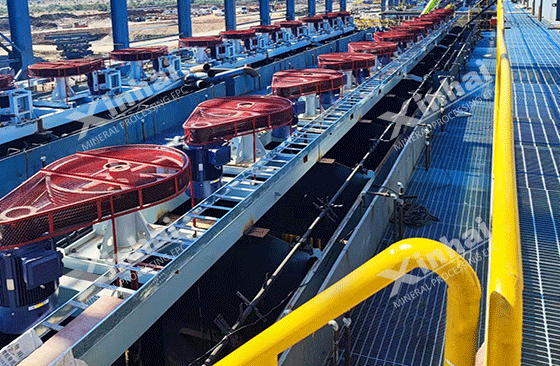
The choice of lithium ore dressing technology depends on the nature of the mineral, the distribution mode and the conditions of the ore bed. The combination of different methods such as hand selection and flotation can maximize the recovery rate and concentrate quality of lithium ore. With the advancement of technology, the lithium ore beneficiation process is also constantly optimized, which has promoted the development of the new energy field and the efficient use of lithium resources.


 marketing@ytxinhai.com
marketing@ytxinhai.com  0086 13810327080
0086 13810327080 






































































































 CHAT
CHAT MESSAGE
MESSAGE




